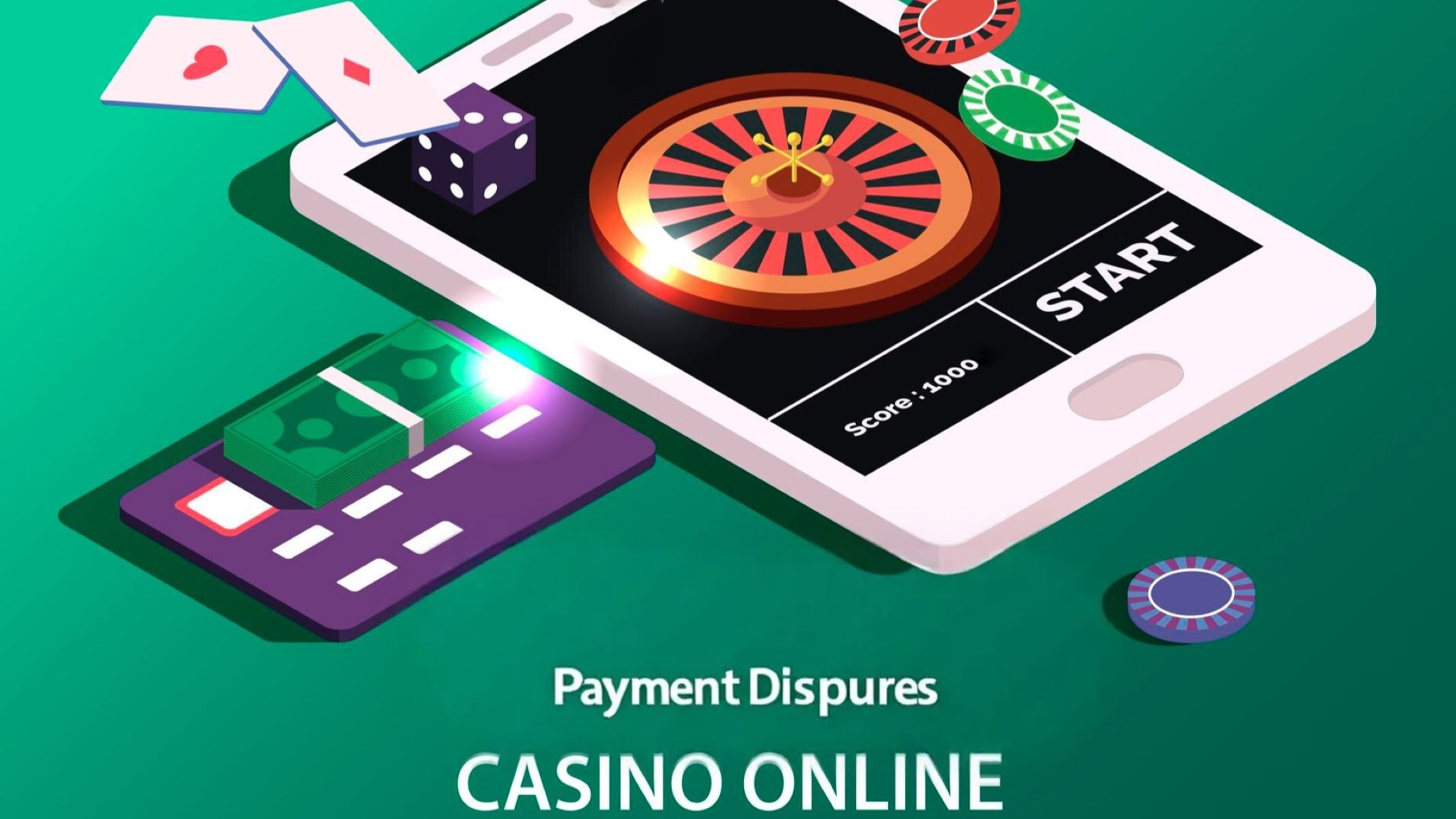Picture this: you’re all set to enjoy your favorite online casino game in India, you’ve deposited your hard-earned money, and suddenly — something goes wrong with your payment. Frustrating, right? Payment disputes can be a real pain for players and casinos alike. So, how do Indian casinos handle these sticky situations? In this article, we’re going to dive deep into the world of payment disputes in Indian casinos. We’ll explore what causes them, how casinos resolve them, and what you as a player can do to protect yourself. Let’s get started!
Understanding Payment Disputes in Indian Casinos
Payment disputes in Indian casinos are far more common than most players think, and they can seriously dampen your gaming experience if not handled properly. At the core, a payment dispute refers to any disagreement or problem that arises during a transaction between the player and the casino. This could be a failed deposit, a delayed withdrawal, incorrect amounts being transferred, or even worse — unauthorized transactions appearing on your statement. These issues usually trigger a red flag for both the player and the casino, and can often involve multiple parties, including banks, payment gateways, and customer service departments.
What makes payment disputes especially frustrating is the emotional and financial stress they can cause. Imagine eagerly trying to cash out your winnings, only to see the withdrawal pending for days with no clear explanation. Or worse, watching your money disappear from your account without ever arriving at the casino’s end. These moments can feel like digital daylight robbery, leaving players angry, confused, and helpless. Because online gambling in India operates in a somewhat gray area legally, there’s also the added complication of regulatory confusion which makes dispute resolution even murkier.
In many cases, the root cause of these disputes lies in simple technical errors or incorrect input by the player — mistyped UPI IDs, outdated card information, or glitches in third-party payment gateways. However, it can also stem from casino-side issues, such as overloaded servers, slow verification processes, or even aggressive fraud protection systems that freeze transactions unnecessarily. These problems are further compounded by the fact that Indian banks and financial institutions are often cautious about facilitating payments to gambling platforms due to unclear laws, leading to additional scrutiny and delays.
The good news is that reputable Indian casinos are becoming increasingly aware of these challenges and are investing in robust systems to detect, manage, and resolve disputes efficiently. Many offer dedicated support channels, real-time tracking of transaction statuses, and transparent communication policies to keep players informed throughout the process. But ultimately, the responsibility also falls on players to stay vigilant, understand the mechanics of the payment methods they use, and be proactive in raising concerns before small issues snowball into full-blown disputes.
Common Causes of Payment Disputes in Indian Casinos
| Cause | Description | Who’s Responsible | How It Affects the Player | Preventive Measures |
| Technical Glitches & System Errors | Failures in casino servers, payment gateways, or mobile app bugs | Casino or Payment Gateway | Delays in transaction processing, failed deposits or withdrawals | Use stable internet, avoid peak hours, contact support if delays occur |
| Incorrect Payment Details | Mistyped UPI ID, card number, or account info entered during a transaction | Player | Funds may get stuck, misdirected, or not show up at all | Double-check payment info before confirming the transaction |
| Regulatory & Legal Restrictions | Payment blocked by banks due to anti-gambling policies or unclear regulations | Bank or Payment Provider | Transactions may be denied, reversed, or marked suspicious | Use accepted payment methods; avoid bank transfers for gambling |
| Security & Fraud Detection | Transactions flagged due to high risk or unusual activity | Casino or Payment Processor | Payment freezing, account holds, or mandatory re-verification | Complete KYC in advance; avoid using shared devices or suspicious IPs |
| Currency Conversion Issues | Mistakes or delays when converting INR to foreign currencies or vice versa | Payment Gateway | Unexpected fees or incorrect deposit/withdrawal amounts | Use casinos that accept INR directly or provide transparent conversion rates |
The Role of Payment Methods in Disputes
Here’s a detailed and extensive list explaining how different payment methods used in Indian casinos can affect payment disputes. Each method has its own pros, cons, and common issues that players should be aware of to avoid problems with their deposits or withdrawals:
- UPI payments are extremely popular because they process transactions instantly, which means your money usually shows up in your casino account right away. The risk of disputes is quite low because UPI transactions are secured with two-factor authentication and are easy to track. However, if you accidentally enter the wrong UPI ID or there’s a temporary technical glitch, disputes can happen.
- Netbanking transactions tend to take longer, often between one to three business days. This delay increases the chance that you might get confused or worried about whether your payment went through. Banks sometimes block or delay transactions related to gambling due to regulatory caution, causing disputes when the money gets stuck or reversed unexpectedly.
- Using credit or debit cards is convenient and allows for mostly instant deposits, but withdrawals can take longer — anywhere from a few hours up to 24 hours or more. A common cause of disputes here is chargebacks, where a player contests a payment with their bank, sometimes without fully understanding the casino’s terms. Card payments may also be scrutinized heavily, leading to transaction holds or extra verification steps.
- E-wallets such as Paytm, PhonePe, and Google Pay provide fast, often instant payments and are very user-friendly. Because transactions happen quickly and are easy to confirm, disputes are less frequent compared to bank transfers. Still, these wallets often have daily or monthly limits, withdrawal restrictions, or fees that players might not anticipate, leading to misunderstandings and disputes.
- Cryptocurrency payments offer anonymity and the promise of quick, borderless transactions. The dispute risk is generally low due to the transparent nature of blockchain technology. However, cryptocurrencies can be volatile in value, and if a casino’s conversion rates aren’t clear or fair, this can cause players to feel shortchanged and raise disputes. Additionally, since crypto is less regulated, resolving disputes can be more complicated.
- Bank transfers, while less commonly used for online casinos due to their slower speeds and regulatory risks, can still cause disputes when delays happen or when banks flag gambling-related transfers as suspicious. These transactions might take several days to clear and can sometimes be reversed without player knowledge.
- Prepaid cards and vouchers, like Paysafecard, offer a prepaid limit which reduces overspending risks but can cause disputes if the card is not activated properly, the balance is insufficient, or if the casino doesn’t accept the specific voucher type. These payment methods are often irreversible once spent, complicating refunds or dispute resolution.
- Mobile wallets integrated with telecom providers sometimes face disputes when network issues or incorrect account linking causes payment failures or delays. Since these wallets are tied to your phone number, any SIM swap or device issue can complicate transaction verification.
- International payment gateways that some casinos use might introduce currency conversion issues or unexpected fees that players aren’t aware of upfront. This lack of transparency can result in disputes over the actual credited amount versus what was deducted from the player’s account.
- Some casinos offer instant banking or “fast pay” options that promise instant deposits and withdrawals, but if the casino’s system isn’t perfectly synced with the payment provider, payments can get stuck or reversed, creating disputes that require manual intervention.
Step-by-Step: How Indian Casinos Typically Handle Payment Disputes
When a payment dispute arises, the first step usually begins with the player reaching out to the casino’s customer support team. This can be done through live chat, email, or over the phone, depending on the casino’s communication options. Clear and prompt communication is essential at this stage because the casino needs detailed information about the transaction, such as the date, amount, payment method, and any error messages you might have seen. Providing as much evidence as possible upfront can speed up the process and reduce misunderstandings. Players who remain calm and cooperative tend to see their issues resolved faster, as support teams can focus on solving the problem rather than dealing with frustration.
Once the complaint is registered, the casino launches an investigation to verify the validity of the claim. This process is much like a detective work where casino staff comb through transaction records, check payment gateway logs, and verify the player’s account details. They look for any discrepancies or irregularities that might explain why the transaction didn’t complete as expected. In some cases, they also coordinate with the payment processors or banks involved to gather additional information. This phase is critical because the casino must establish whether the problem lies with their own system, the payment provider, or the player’s banking institution.
If the investigation uncovers a genuine problem, the casino may take immediate action by placing a temporary hold on funds or reversing the faulty transaction. This helps prevent further confusion or loss of money while the dispute is being sorted out. Such measures show the casino’s commitment to protecting both the player and themselves from financial discrepancies. However, these holds or reversals are only temporary and are part of a broader effort to reconcile accounts accurately before a final decision is made. Sometimes this can mean freezing withdrawals until the issue is resolved, which can understandably cause some anxiety for players.
Finally, once all the evidence is gathered and reviewed, the casino will reach a resolution. If the dispute is confirmed as valid, they usually refund the player or credit the correct amount to their casino account. However, if there is disagreement or if the issue is beyond the casino’s control, the matter may escalate to payment processors, banks, or even legal entities for further review. Throughout this entire process, clear communication and patience from both parties are crucial for a smooth resolution. Understanding these steps helps players manage their expectations and know what to do if they ever find themselves caught in a payment dispute with an Indian casino.
How Casinos Communicate During Disputes
| Communication Channel | Description | Advantages | Common Issues | Player Tips |
| Real-time Chat Support | Instant messaging with customer service representatives | Quick responses, immediate clarification | May have limited hours or long waits | Use during active casino hours for faster help |
| Email Updates | Periodic status updates sent via email | Provides written records and detailed info | Delays in response time | Check spam/junk folders and reply promptly |
| Dedicated Dispute Teams | Specialized staff handling payment disputes | Expert handling, faster resolution | Can be overwhelmed with high volumes | Follow instructions carefully, be patient |
| Phone Support | Direct voice communication with support agents | Personal interaction, detailed explanations | Language barriers or hold times | Prepare necessary documents before calling |
| Automated Ticket Systems | System generates a support ticket for the complaint | Organizes and tracks dispute progress | Risk of slow or generic responses | Always follow up on ticket status regularly |
Legal Framework Surrounding Payment Disputes in Indian Casinos
- Indian gambling laws are complex and fragmented, with regulations varying significantly from one state to another. Unlike countries with uniform and clearly defined rules, India’s legal landscape around online gambling remains ambiguous, creating confusion for both players and operators.
- The absence of a central regulatory authority for online gambling means that many aspects, including payment processing, fall into a legal gray area. This lack of clarity often leads to inconsistent enforcement and makes it difficult for casinos to operate with full transparency.
- Some Indian states explicitly prohibit gambling, while others have either legalized certain forms or remain silent on the issue. This patchwork of laws forces casinos to navigate carefully to avoid violating local statutes, which complicates payment acceptance and withdrawal processes.
- Banks and financial institutions in India exercise caution when processing transactions related to gambling. Due to the ambiguous legal environment, many banks choose to block or flag payments to gambling platforms to minimize their own legal risk, leading to delayed or failed deposits and withdrawals.
- Payment gateways, which act as intermediaries between casinos and banks, also face regulatory scrutiny. They often implement strict anti-fraud measures and compliance checks that can result in freezing or rejecting transactions involving gambling sites.
- The Reserve Bank of India (RBI) has issued circulars advising banks to exercise prudence regarding online gambling payments, although these guidelines are not always consistently applied, adding to uncertainty for all parties involved.
- Due to these regulatory challenges, many Indian casinos opt to operate offshore or partner with foreign payment providers to facilitate smoother transactions. However, this can introduce further complications for players trying to resolve payment disputes within the Indian jurisdiction.
- The legal uncertainty around online gambling also limits the availability of consumer protection mechanisms in India. Players facing payment disputes may find it difficult to seek formal legal recourse or enforce their rights through Indian courts.
- In response to these challenges, some Indian states are exploring legislation to regulate online gambling more clearly, which could eventually lead to improved payment processing frameworks and better dispute resolution processes.
- Until comprehensive regulation is in place, both players and casinos must stay vigilant, understand local laws, and use trusted payment methods to minimize the risk of disputes and ensure smoother financial transactions.



